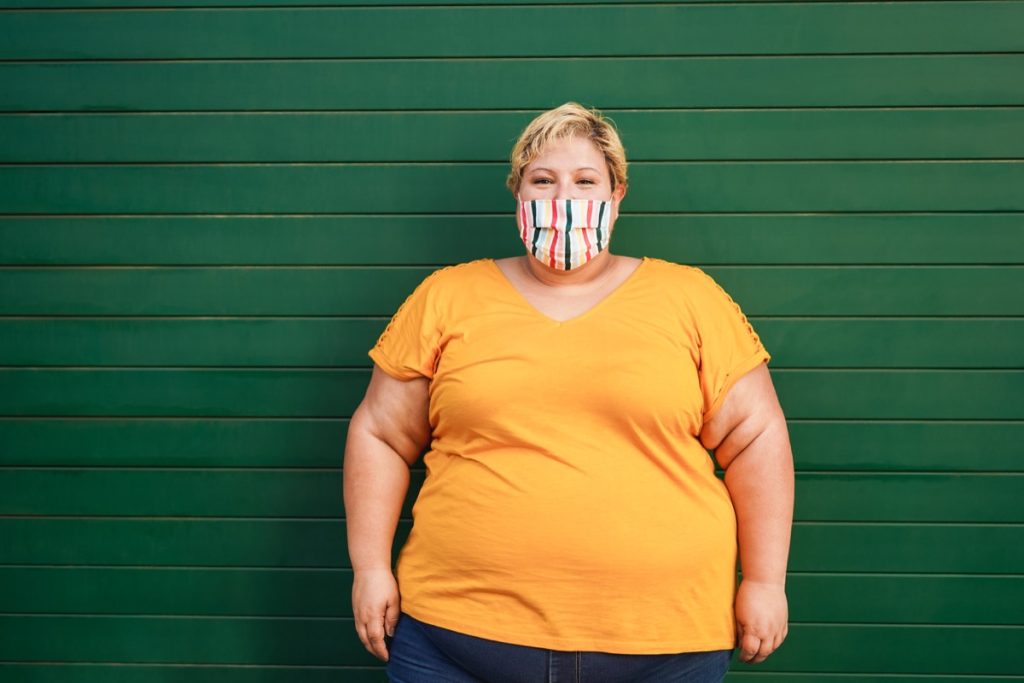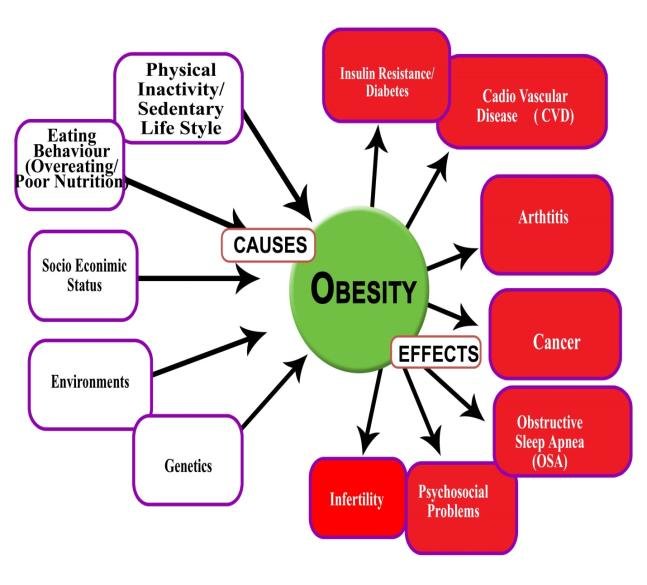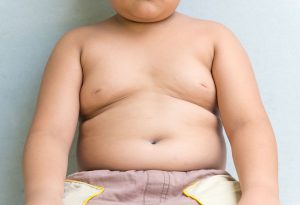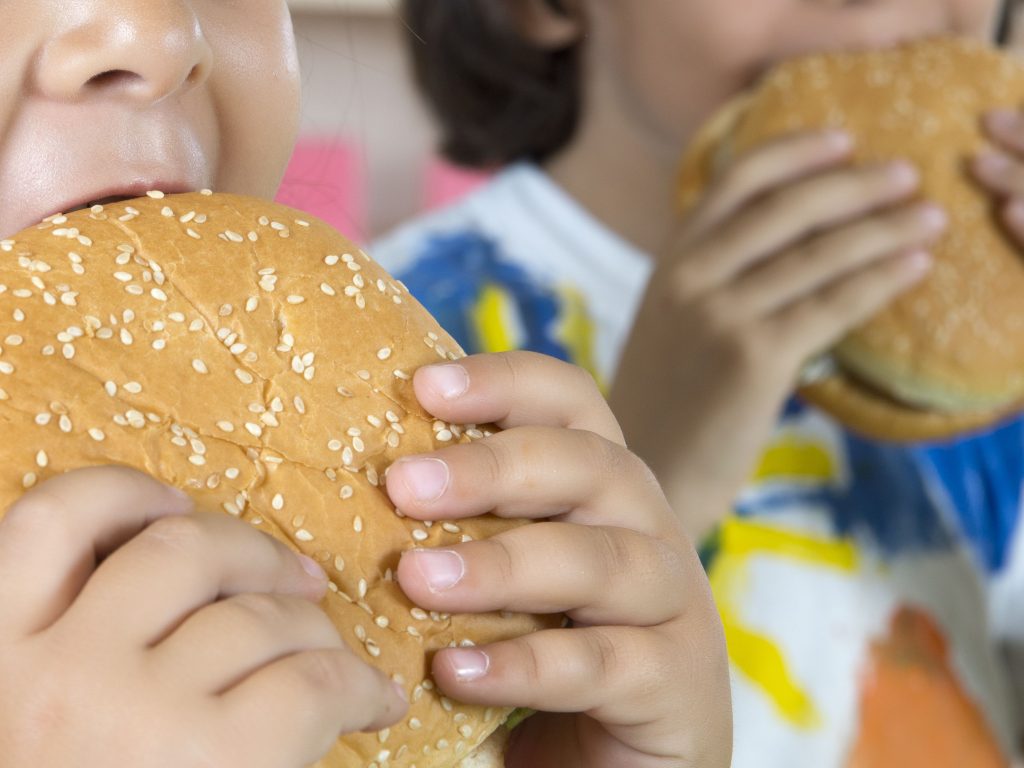Almost one-third of children are now overweight or obese. This is a serious problem, and it’s time to start talking about it openly and honestly. In this blog post, we will discuss the causes of childhood obesity and ways to help your child lose weight safely and effectively.
Contents
What Is Obesity?
Excessive body fat is called obesity. Obesity is not just being overweight; it is a serious medical condition that can lead to many health problems. Childhood obesity, in particular, has become a growing epidemic in the United States and around the world. According to the Centers for Disease Control and Prevention (CDC), about one-third of American children and adolescents are obese or overweight. That’s more than 20 million kids!
What Causes Obesity?
There are many factors that contribute to childhood obesity, including genetics, lifestyle choices, and environmental influences. Here are some of the most common causes:
- Poor diet – Kids today are eating too much-processed food and not enough fruits and vegetables.
- Lack of physical activity – Children are spending more time than ever before in front of the TV, computer, or phone screen instead of being active outdoors.
- Unhealthy weight-loss practices – Some kids try to lose weight by fasting, dieting, or taking weight-loss supplements. This can actually lead to weight gain over time.
- Biological factors – In some cases, children may be predisposed to obesity due to their genes or hormones.
Health Risks of Childhood Obesity
Obesity puts children at risk for a variety of health problems, including:
- Heart disease: High blood pressure, high cholesterol, and type 2 diabetes are conditions that have all been linked to obesity. These conditions may not occur until adulthood, but they are more likely to affect children who are obese.
- Osteoarthritis: Osteoarthritis is a form of arthritis caused by wear and tear of the joints. The more weight on your joints, the more pressure, and friction there is on those joints. This can result in damage to or wearing away of the cartilage at the ends of bones. Over time, this may cause pain and reduced range of motion in those joints.
- Type II diabetes: Type 2 diabetes, a chronic condition in which the body does not produce or use insulin well, can affect children and teens. Type 2 diabetes is more common in African Americans, Hispanic Americans, American Indians, Asian Americans, Pacific Islanders, and people who are over 40 years old when they develop type 2 diabetes.
- Cancer: Certain cancers have been linked to obesity. These include cancer of the esophagus, uterus, cervix, and colon.
- Sleep apnea: Sleep apnea is a sleep disorder that causes breathing problems during sleep. People with this condition may snore loudly or stop breathing temporarily. They may be sleepy during the day because they aren’t sleeping well at night. Also, sleep apnea can lead to other health problems, including obesity and high blood pressure.
- Joint problems: Children who are obese may have problems with their joints, such as an abnormal alignment of the hips or legs. Foot problems are more likely in people who are overweight.
- Gallbladder disease: Being overweight puts you at risk for gallstones. Gallstones develop when there is too much cholesterol in bile (a fluid made by the liver to aid digestion). These stones can cause pain and vomiting, and they should be treated by a doctor.
- Infertility: Women who are obese may have irregular periods. If a woman is very overweight, she may fail to ovulate each month. This can make it more difficult for her to get pregnant.
- Depression and anxiety: People who are obese may have feelings of depression or anxiety. They may feel isolated, not accepted by family and friends, or less successful than their peers.
- Poor self-esteem: Children who are obese sometimes have problems at school. Their peers may tease them or reject them socially. This can lead to poor self-esteem, which carries over into adulthood.
How Can I Help My Child Lose Weight?
If you are worried that your child is overweight or obese, the best thing to do is talk with your child’s doctor. The doctor can do a check-up and tell you how to help your child lose weight safely. Here are some tips:
- Encourage healthy eating habits – Serve balanced meals with plenty of fruits and vegetables, and avoid processed foods.
- Make time for physical activity – Set a good example by being active yourself, and schedule regular exercise sessions for the whole family.
- Set reasonable goals – Don’t expect your child to lose weight overnight; aim for gradual, sustainable progress.
- Be positive and supportive – Offer encouragement and praise, and avoid criticizing or shaming your child.
Childhood obesity is a serious problem that can have harmful consequences for health. But with patience and the right approach, it is possible to help your child lose weight and improve their health.
Factors That May Contribute To Childhood Obesity
There are many factors that contribute to childhood obesity, including genetics, lifestyle choices, and environmental influences.
- Poor diet – Kids today are eating too much-processed food and not enough fruits and vegetables.
- Lack of physical activity – Children are spending more time than ever before in front of the TV, computer, or phone screen instead of being active outdoors.
- Unhealthy weight-loss practices – Some kids try to lose weight by fasting, dieting, or taking weight-loss supplements. This can actually lead to weight gain over time.
- Biological factors – In some cases, children may be predisposed to obesity due to their genes or hormones.
Understanding Childhood Weight Problems?
The truth is that childhood weight problems are on the rise. Nearly one-third of children and adolescents are overweight or obese. Also, this can lead to health problems now and in the future. It’s important to get your child on a healthy path early in life.
Myths About Childhood Obesity
Myth 01: “Fat kids are just lazy and eat too much.”
Actually, overweight children often have a harder time burning off calories. They may be inactive because they can’t keep up with their peers or they get teased at school. And sometimes, kids who seem to overindulge are actually eating not-so-healthy foods because that’s all that is available to them.
Myth 02: “If my child is obese, there isn’t anything I can do about it.”
This isn’t true! Just like adults, overweight and obese children can benefit from healthy eating and exercise habits. In fact, even a small weight loss can improve health outcomes.
Myth 03: “Obesity is just a cosmetic issue – it’s not a real problem.”
Actually, obesity is a serious health condition. It increases the risk for heart disease, type II diabetes, some types of cancer, and more. Children who are obese are also more likely to be obese as adults. This puts them at risk for even more health problems down the road.
Myth 04: “My kid is just big-boned – there’s nothing I can do about it.”
Truth: While genes may play a role in obesity, lifestyle choices also have a major impact. Just like adults, overweight and obese children can benefit from healthy eating and exercise habits.
Myth 05: “Obesity is a personal problem – it’s not anyone else’s business.”
Truth: Childhood obesity is a public health issue. It affects not only the child but also their families and communities. Everyone has a role to play in preventing and addressing childhood obesity.
Myth 06: “If my child is obese, they will just have to live with it.”
Truth: Obesity is reversible. weight loss can improve health outcomes for children who are overweight or obese. Moreover, with patience, support, and guidance from healthcare professionals, most children can achieve a healthy weight.
Myth 07: “Exercise is too hard for kids – they won’t stick with it.”
Truth: Exercise is an important part of a healthy lifestyle for kids. It can help improve overall health, reduce the risk of chronic diseases, and promote weight loss. There are many types of exercise that kids can enjoy, such as running, biking, swimming, and playing sports.
Myth 08: “If my child is overweight or obese, I should put them on a diet.”
Truth: Restrictive diets can actually lead to weight gain in children. Instead of putting your child on a diet, work with a healthcare professional to develop healthy eating habits that are appropriate for their age and stage of development.
Myth 09: “Food manufacturers are responsible for childhood obesity – they need to be regulated.”
Truth: While food manufacturers may play a role in childhood obesity, they are not solely responsible. Also, arents, healthcare professionals, and the community all have a part to play in addressing this growing problem.
Myth 10: “Only lazy kids get obese – my child is always active so there’s no way they could be overweight.”
Truth: Obesity can occur in children who are very active as well as those who are inactive. It’s important to remember that BMI is not the only indicator of a child’s health – just because your child falls within the normal weight range on the BMI scale doesn’t mean they are healthy.
Dangers of Childhood Obesity
There are many dangers associated with childhood obesity, including:
- Respiratory problems – Obese children are more likely to suffer from sleep apnea and other respiratory problems.
- Joint problems – Overweight kids are at risk for joint problems such as arthritis as they get older.
- Gallbladder disease – obese children are more likely to develop gallbladder disease.
- Infertility – Being overweight or obese can lead to infertility in both men and women.
- Depression and anxiety – Obese children are more prone to depression and anxiety disorders.
- Eating disorders – Some children who are struggling with their weight may develop eating disorders such as anorexia or bulimia.
How Can I Help My Child To Be More Active?
One of the best things you can do to help your child be more active is to set a good example for yourself. Also, if you’re inactive, your child is likely to be inactive as well. Try to get moving every day and make physical activity a part of your family’s lifestyle.
Here are some other tips for getting kids moving:
- Find activities they enjoy – Kids are more likely to stick with an activity if they enjoy it. Choose sports or activities that fit their interests and personality.
- Make it social – Involve friends or classmates in physical activities so kids have someone to participate with.
- Set goals – Help your child set realistic fitness goals, such as walking for 30 minutes three times a week.
- Be positive – Reward your child for making healthy choices, even if they’re not perfect. Negative reinforcement (like scolding or punishment) is less effective and can actually backfire.
- Provide support – Let your child know you’re there to help them reach their goals, whether it’s through encouragement or practical assistance like finding a healthy snack when they’re out of ideas.
Conclusion
Childhood obesity is a growing problem in the United States. It can lead to health problems now and in the future. There are many dangers associated with being obese as a child, including respiratory problems, joint pain, infertility, and depression. But there are things parents can do to help their children be more active and live healthier lives. Also, setting a good example, finding activities they enjoy, making it social, and providing support are all important steps in helping kids stay healthy.
A Word From Therapy Mantra
Your mental health — Your psychological, emotional, and social well-being — has an impact on every aspect of your life. Positive mental health essentially allows you to effectively deal with life’s everyday challenges.
At TherapyMantra, we have a team of therapists who provide affordable online therapy to assist you with issues such as depression, anxiety, stress, workplace Issues, addiction, relationship, OCD, LGBTQ, and PTSD. You can book a free therapy or download our free Android or iOS app.








